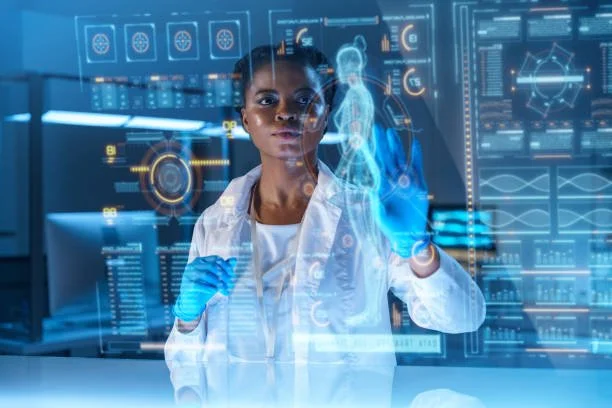AI in Legal Nurse Consulting: Enhancing Accuracy, Not Replacing Expertise
Artificial Intelligence Is Here—But Expertise Still Matters
As artificial intelligence (AI) continues to transform industries, legal nurse consulting is adapting to this shift. But contrary to popular belief, AI isn't replacing human expertise—it’s reinforcing it. When used effectively, AI enhances speed, accuracy, and consistency, enabling attorneys to achieve better outcomes more quickly.
At Lexcura Summit Medical-Legal Consulting, we integrate AI-assisted tools with the hands-on knowledge of our licensed medical professionals to deliver precise, litigation-ready support. Here’s how AI is shaping the future of legal nurse consulting—and why human insight still drives the process.
How AI Is Used in Legal Nurse Consulting
AI in legal nurse consulting helps streamline time-consuming and repetitive tasks, making the review process faster and more efficient. Here’s what AI can assist with:
1. Accelerated Record Sorting and Organization
AI can quickly scan and categorize hundreds—or even thousands—of pages of medical records.
✅ Speeds up the initial intake process
✅ Automatically identifies document types (labs, nursing notes, operative reports)
✅ Flags potential duplicates or missing pages
📌 At Lexcura Summit, we use these tools to jumpstart our review—so our consultants spend more time on analysis, not admin.
2. Keyword and Symptom Pattern Recognition
AI algorithms can highlight relevant entries related to:
Pain complaints
Medication errors
Falls
Pressure ulcers
Surgical complications
This allows legal nurse consultants to focus on patterns that may indicate a breach in the standard of care.
3. Timeline Generation Support
AI tools can help draft chronologies of care by utilizing timestamps and progress notes to document care. However, these timelines often lack context or clinical relevance.
📌 That’s where our LNCs step in—to review, verify, and clarify the sequence of events in a medically meaningful way.
4. Assisting with EHR Audit Trail Analysis
AI-powered tools can help interpret EHR metadata—tracking who accessed records, when entries were made, or if changes occurred.
LNCs then analyze this data to determine if late entries, backdating, or altered documentation affected patient outcomes.
What AI Can’t Replace: Clinical Judgment and Case Strategy
While AI excels at automation, it lacks the ability to:
🚫 Understand nuanced patient interactions
🚫 Interpret tone, language, or intent in documentation
🚫 Recognize when a deviation from care was medically justified
🚫 Assess legal implications in context with clinical standards
🚫 Communicate clearly with attorneys, experts, and juries
At Lexcura Summit, every case is reviewed by a real, licensed medical professional—no exceptions. AI assists us, but does not drive the conclusions.
The Lexcura Summit Difference: AI + Expert Oversight
We believe technology should enhance, not eliminate, the expertise behind medical-legal consulting.
Our Process:
Use AI-assisted tools to streamline document review
Assign a qualified legal nurse consultant to verify and interpret findings
Deliver a detailed, strategic analysis based on clinical and legal relevance
Support attorneys with expert coordination, deposition prep, and trial strategy
Benefits to Attorneys
✅ Faster turnaround (7 days or less for most reviews)
✅ More comprehensive record analysis
✅ Improved accuracy and documentation flagging
✅ Lower costs by streamlining time-intensive tasks
✅ Litigation-ready summaries backed by expert human insight
Final Thoughts
AI is a powerful ally—but it’s not a substitute for professional judgment. In the world of legal nurse consulting, technology accelerates the process; however, it’s the trained eyes and strategic thinking of medical-legal experts that ultimately win cases.
📞 Contact Lexcura Summit Medical-Legal Consulting today to see how we blend AI-powered tools with unmatched clinical expertise—delivering precision, speed, and trusted support for your next case.

